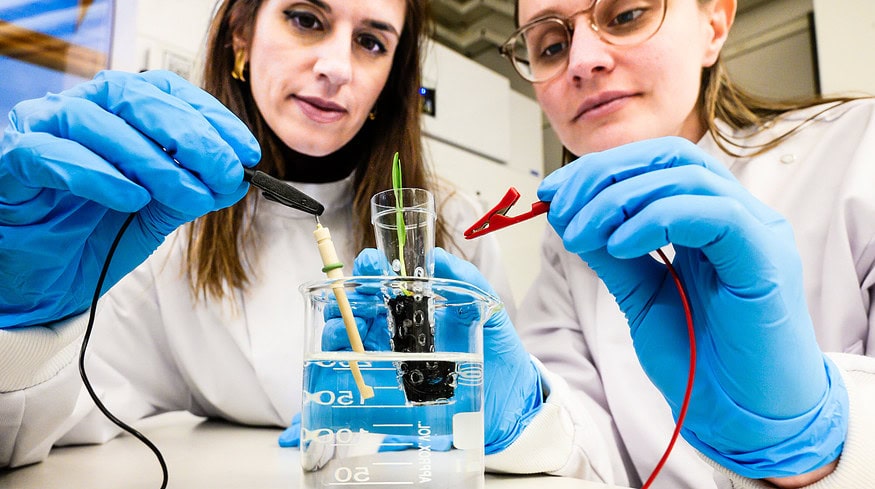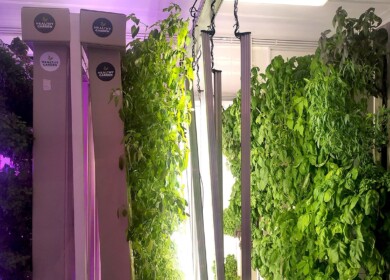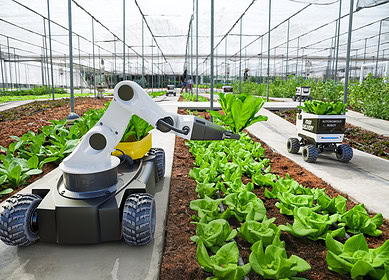Scientists revolutionize plant growth through electrically conductive soil

Scientists at Linköping University have introduced a groundbreaking advancement in agriculture by developing a unique electrically conductive soil designed to supercharge plant growth without the need for traditional soil. Dubbed “eSoil,” this innovative substrate leverages hydroponics, a method that eschews conventional soil in favor of a water-based nutrient solution. This pioneering approach not only significantly reduces water consumption but also retains essential nutrients within the system, outperforming conventional agricultural practices.
Hydroponics, previously recognized for vertical farming of lettuce, herbs, and vegetables, is now poised to redefine plant cultivation with the advent of eSoil. Researchers at Linköping University discovered that barley plants cultivated in this electrically conductive medium exhibited a remarkable 50% increase in growth within a mere 15 days when exposed to electric stimulation at their roots.
Professor Eleni Stavrinidou, the study’s lead author and associate professor at Linköping University, remarked, “In this way, we can get seedlings to grow faster with fewer resources. We don’t yet fully understand the underlying biological mechanisms, but our findings indicate that seedlings process nitrogen more efficiently under the influence of electrical stimulation.”
Traditionally, hydroponics has relied on mineral wool for plant growth, a method that is neither environmentally friendly nor energy-efficient. In stark contrast, eSoil is composed of cellulose and a conductive polymer, making it a sustainable choice for hydroponic farming. This innovation not only reduces energy consumption but also ensures safety in its application.
While previous attempts at boosting plant growth often relied on high voltage, eSoil achieves the same results with minimal energy input, marking a significant leap in the field of hydroponics. The researchers anticipate that this breakthrough will spur further research and development in hydroponic cultivation techniques.
In a world grappling with the twin challenges of a burgeoning population and climate change, Professor Eleni Stavrinidou, who leads the Electronic Plants group, emphasized the potential of hydroponics to address food security issues. She stated, “It’s clear that we won’t be able to meet the world’s food demands using existing agricultural methods alone. With hydroponics, we can cultivate food in urban environments under controlled conditions.”
While eSoil may not provide a universal solution to global food challenges, it offers a lifeline to regions with limited agricultural space and adverse weather conditions, potentially transforming the way we grow crops in the future. The study, which was initially published in the PNAS journal, opens new avenues for active hydroponic substrates, promising sustainable increases in crop yields.
Source: Phys.org
Enjoyed this story?
Every Monday, our subscribers get their hands on a digest of the most trending agriculture news. You can join them too!
















Discussion0 comments